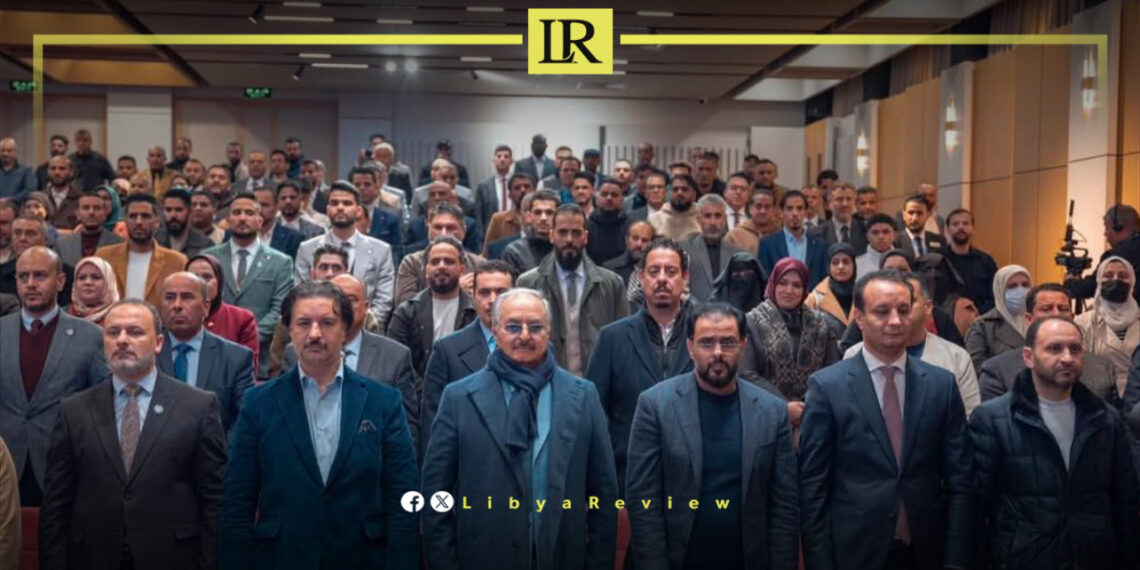General Commander of the Libyan National Army (LNA), Field Marshal Khalifa Haftar, along with the Director-General of the Libyan Development and Reconstruction Fund, Engineer Balaqasim Khalifa Haftar, inaugurated the new faculty buildings of the University of Benghazi’s Al Marj branch.
The ceremony was attended by Libyan Prime Minister Osama Hammad and member of the House of Representatives from Al Marj, Sultana al-Mismari, the Dean of Al Marj Municipality, and the President of the University of Benghazi, along with numerous officials, academics, and public figures.
This inauguration is part of ongoing efforts to enhance the infrastructure of educational institutions and achieve a comprehensive vision to support higher education in Libya.
The projects were executed according to the latest standards to ensure a modern educational environment that meets the needs of students and faculty members.
The inauguration also included a tour of the new facilities, showcasing the modern amenities provided which will contribute to improving the quality of education and services offered to students.
The opening of the University of Benghazi’s faculties in Al Marj marks a significant step in the development of higher education in Libya, reflecting the Development Fund’s commitment to providing a comprehensive educational environment that meets the aspirations of future generations.
Libya has been in chaos since a NATO-backed uprising toppled longtime leader Muammar Gaddafi in 2011. The county has for years been split between rival administrations.
Libya’s economy, heavily reliant on oil, has suffered due to the ongoing conflict. The instability has led to fluctuations in oil production and prices, impacting the global oil market and Libya’s economy.
The conflict has led to a significant humanitarian crisis in Libya, with thousands of people killed, and many more displaced. Migrants and refugees using Libya as a transit point to Europe have also faced dire conditions.
The planned elections for December 2021 were delayed due to disagreements over election laws and the eligibility of certain candidates. This delay has raised concerns about the feasibility of a peaceful political transition.
Despite the ceasefire, security remains a significant concern with sporadic fighting and the presence of mercenaries and foreign fighters. The unification of the military and the removal of foreign forces are crucial challenges.


